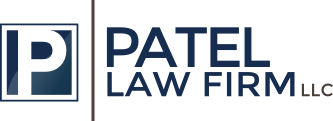Damage to Your Car
Car and truck accident cases involve two separate and distinct claims. The first claim is referred to the damage done to your property. The second claim is the damage done to yourself, i.e. injury claim.
Property Damage Claims
Property damage claims allow you to recover for the damage done to your property. In most situations this would include the cost to repair your car, the cost for your rental vehicle while your car is being fixed, and finally, in the most extreme situations the cost to replace your car if it is deemed a total loss/totaled. Property damage claims are simple and straight forward that can be handled without the need for an attorney. It is easy to determine the cost to fix your car by having a body shop prepare an estimate. Likewise, it is relatively simple to determine the value of your vehicle if it is a total loss by using Kelly Blue Book. Property damage claims should be resolved within a short period of time especially if the insurance for the person that caused the accident is taking responsibility.
Rental Car & Other Expenses
Other damages that can be recovered in property damage claims include the cost to rent a car while your own car is being fixed. You can also recover for towing and storage costs so long as these expenses were caused by the accident. Once again, these items of damage should be simple to calculate as the rental agency and the tow yard will be able to provide you with an invoice.
Diminished Value of Car
You might be able to claim for the diminished value of your car, especially in situations where your car sustains severe damage and is repaired. The measure of damages would be the difference between value of the exact same two vehicles, one that has been in an accident and the other that has not. Determining diminished value always requires an expert, be it a car appraiser, a dealer, etc. One simple, and cost effective method is to take your car to a dealership and have a sales associate prepare a car estimate for the value of your vehicle, both including and excluding it having been involved in a wreck. Be prepared for the insurance company to have their own expert analysis as their goals in these situations is to pay as little as possible.
Resolving Property Damage Claims
Property damage claims like injury claims require you to show that the other person was the cause of the accident. Like injury claims, you should immediately notify both your insurance and the insurance of the other driver in the accident. I often tell my clients to use their own insurance to handle their property damage claim, if, and only if, they have full coverage. In these situations, you don’t have to wait for your insurance to determine who is at fault for the accident so long as you have full coverage. Your own insurance will also want to accommodate your needs as you have been a loyal, paying customer, who they want to keep happy while dealing with the injury accident process. In almost all situations, your own insurance will then collect any monies they paid out on your behalf as well as any monies you incurred regarding your property damage loses, if it is later determined that the other person was at fault in causing the wreck.
In certain circumstances, an injured person will have to go through the insurance of the driver that caused the accident. In these cases, a person might wait for the insurance company to approve the rental pending their own investigation of the accident. Alternatively, a person can rent and pay for the rental and be reimbursed once the insurance company accepts responsibility. Just remember that the other persons insurance company will investigate an accident to determine who is at fault before paying out any expenses associated with your property damage claim.
Duty to Mitigate Damages
Georgia law is unique in that hurt victims have a duty to mitigate their damages. This applies both to their injury claim as well as their property damage claim. What this means is that a person needs to act reasonably, as any other person would to mitigate damages flowing from a car or truck accident. Therefore, keeping a rental car for months after an insurance company has given you a check for your total loss is unreasonable. A reasonable person would not continue using a rental car for months while they wait to purchase another vehicle. Likewise, renting an exotic car is unacceptable when the car that was originally damaged was a Honda Civic or Toyota Corolla. This makes sense as the goal of property damage claims is to put you in a position had the accident not occurred.
